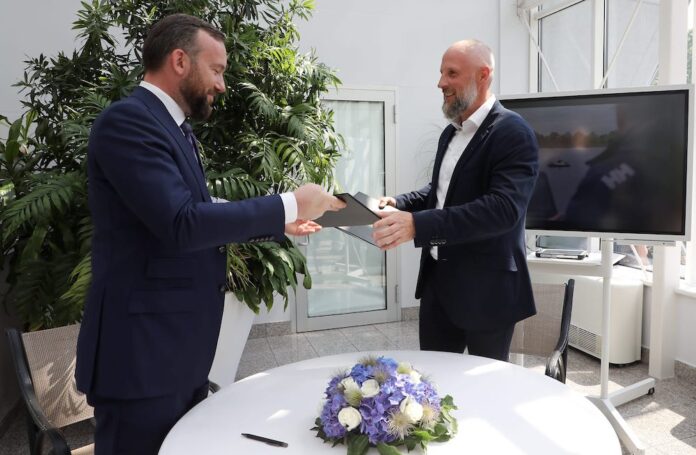LMT to create new systems for shipping in Baltic ports
Latvian mobile system maker LMT has signed a memorandum of understanding with port services provider Rigas Brivostas Flote (RBF) to create new 5G inventions for the maritime sector. The memo alludes to creating and testing 5G for ships and ports but some fear that ports may have wider importance soon.
Demos
The first demos of how 5G will orchestrate ship-to-port and ship-to-ship communication will take place in the Gulf of Riga in 2023. This could be useful if transport and logistics becomes an important national issue in the case of an escalating conflict among Latvia’s neighbours. Fears over the war in Ukraine are sending tremours up to the Baltic, according to a report in Politico. Meanwhile 5G network connectivity presents massive innovation and digitalization potential for the maritime sector and ports, according to LMT.
Challenges
Installing 5G-enabled at sea presents many challenges, notably ensuring offshore 5G network infrastructure. The LMT and RBF pact is a significant step toward bringing 5G to sea to improve real-time communication between ships and ports, promote the digitisation of port services, and develop new systems for everything from loading, through inspection, to freight tracking and container management in the maritime industry.
5G-on-sea
“Bringing 5G to the sea is the key to moving towards a connected maritime mobility ecosystem,” said Arturs Lindenbergs, Mobility Innovation Lead at LMT, “but this area of invention is globally dormant due to the infrastructural complexity, which is why this memorandum is not only of local but also of global importance.” LMT has been widely testing and implementing 5G innovations in smart mobility, public safety and defence, claimed Lindenbergs: “We have vast expertise in using 5G for mobility, and we’re eager to begin developing smart maritime innovations.”
Heavy machinery
With ports facing changing weather conditions, organizing safe movement of heavy machinery and coping with the prospect of an escalating war, 5G could be particularly useful. Along with initiating faster and more efficient data exchange between ships and the coast, it could improve port technical services such as depth measurements. Additionally, 5G-enabled sensors and devices can give highly-accurate information on a ships’ whereabouts, making daily port operations more efficient, safe, and sustainable. These would well become more critical in a time of conflict.
Environment
The use of 5G in the maritime sector is significance from the environmental too. It would support the collection of data on the changing coastlines, the state of coastal seas and the pollution caused by wars. 5G-enabled devices can observe and record environmental parameters, providing an accurate and data-based outlook on the current ecological state, crucial for making sustainability-led decisions. “With this collaboration we aim to enable the use of 5G in the port and the Gulf of Riga and eventually everywhere in the Baltics,” said RBF CEO Kaspars Ozolins.


